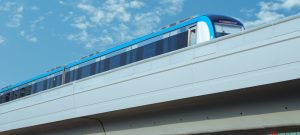
BRITISH COLUMBIA – The Province is supporting the feasibility of a high-speed rail service connecting Vancouver, Seattle and Portland with a $300,000 investment in the next phase of the Ultra High Speed Ground Transportation Project.
“Improving transportation connectivity throughout the Pacific Northwest is an important part of our work to build a stronger, more sustainable future for people on both sides of our border,” said Premier John Horgan. “This proposal has the potential to significantly cut transportation time between Seattle and Vancouver – presenting new opportunities for clean economic growth, job creation and tourism throughout the region. That’s why our government is proud to invest in the next phase of the high-speed rail study.”
The next phase of the study, led by the Washington State Department of Transportation in partnership with BC, Oregon and other regional and local agencies, intends to:
- address the roles, responsibilities and future funding requirements of the project;
- develop a regional public outreach and engagement strategy;
- explore opportunities to integrate ultra-high-speed rail into regional transportation and land-use planning; and
- develop plans for future environmental review processes, engineering and design requirements.
“I want to thank our partners in British Columbia and along the West Coast as we continue making progress toward a high-speed rail system that will strengthen our economic and cultural bonds and transform how we travel,” said Washington Gov. Jay Inslee. “This is one more example of our shared belief that innovation drives prosperity and a more sustainable world for everyone.”
In 2018, Premier Horgan and Gov. Inslee signed a memorandum of understanding (MOU) to act jointly to grow the region’s innovation economy, protect the environment and combat climate change, promote trade and improve transportation connectivity. In November 2021, a new MOU between BC, Washington and Oregon was executed that committed the parties to continue advancing activities that support the program.
Washington state has approved US$4 million in funding to advance the next phase of the study.
Results from previous phases of the study show the project presents significant benefits, such as:
- stronger trade ties between BC, Washington and Oregon;
- economic activity equalling as much as $355 billion within the region;
- creation of as many as 200,000 jobs;
- between 1.7 million and 3.1 million one-way trips annually by 2040, with Vancouver to Seattle estimated at 25 per cent of the total (425,000 to 775,000 trips);
- a reduction of as much as six million tonnes of greenhouse gas in the first 40 years of operations; and
- estimated construction costs for as much as $42 billion with revenue expected to cover project costs by 2055.
High-speed trains travel as fast as 400 kilometres per hour.

